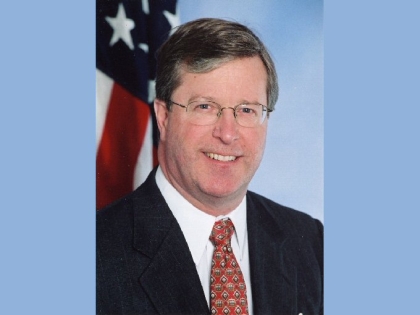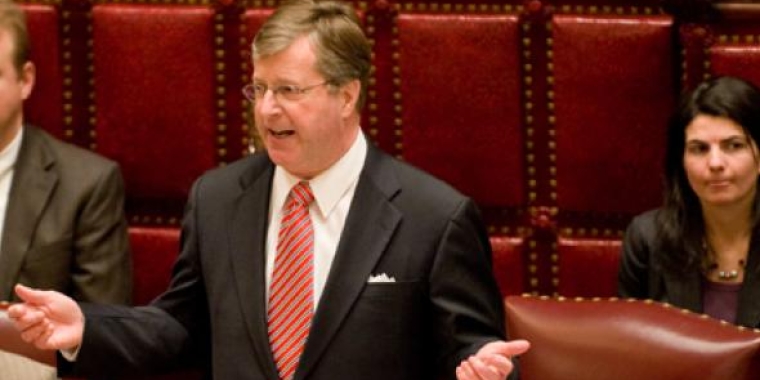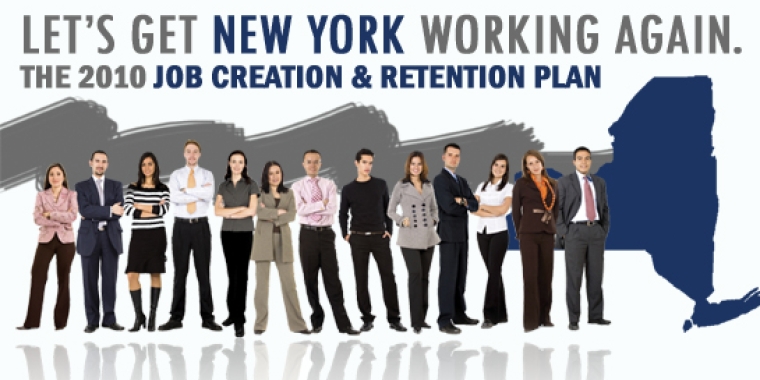
Labor Day and the Upstate Economy
George Winner
September 6, 2010
-
ISSUE:
- Economic Development

One of the time-honored flare-ups in New York State politics, and it seems to have been reignited most often throughout the past century when things (especially the economy) turn especially volatile, is the call for secession.
Split New York into two states along an upstate-downstate boundary, the idea goes – we’ll leave them to their resources, and we’ll take care of our own.
While it’s hard to deny the obvious political appeal and power of the idea, I’ve never been one to take the reality of secession proposals all that seriously. Maybe one of New York’s most highly regarded and well-respected think thanks, the Public Policy Institute, an educational and research arm of the state Business Council, put it best in a May 2004 statement on upstate-downstate secession: "Secession would be impossible, and the last thing New York needs is some kind of destructive Upstate-Downstate showdown. But given the prolonged lag in Upstate’s economy, it is time to think seriously about whether there is a way of restructuring the relationship to give Upstate the opportunity—indeed, the freedom—to reduce some of the disadvantages that are smothering its economy."
Exactly. It’s been a steady argument and priority of mine throughout most of the past four decades in New York government, but especially over the past several years as the levers of state power have become increasingly under lock-and-key downstate, Democratic control. Upstate New York, especially the upstate economy, gets shortchanged in this government, and it has to change. But how?
It’s long past the due date to rethink and revitalize upstate’s rightful place in New York government and heading into 2011, which could evolve as one of the most challenging legislative sessions in history, upstaters better take note and do anything and everything possible to ensure their fair and effective representation.
That’s why I’m particularly heartened by the recent release of the first-ever legislative scorecard from an organization known as Unshackle Upstate, a bipartisan coalition of over 80 business and trade groups representing approximately 70,000 companies employing more than 1.5 million employees across the upstate region.
This new scorecard achieves two vital goals. First, it pinpoints the key issues facing the upstate region and, in doing so, lays out a blueprint for what must be a renewed and revitalized Upstate Agenda in the 2011 legislative session. Secondly, it provides a window into how individual state legislators are treating these issues, if they bother to pay attention to them at all – and therefore gives advocacy groups, taxpayers, and every concerned citizen the opportunity to pinpoint who they can count on and turn to in this mission.
You can read more about Unshackle Upstate and its 2010 legislative summary online at www.unshackleupstate.com. I’d encourage it. It all serves, again, to sound the alarm on the upstate economy.
I have never had any doubts or misgivings about the local willingness to keep this region moving ahead toward a stronger economic future and to pursue the public-private partnerships critical to meeting economic challenges. We should be encouraged by this region's clear commitment to taking the necessary steps to build an effective economic development framework and to keep implementing a strategy that builds on our strengths, anticipates our needs and envisions future opportunities. This local dedication will make all the difference in helping our region develop as an upstate economic standout.
But we can't do it alone. There must be state-level action too, and that's been, at best, lagging. A few years ago, upon releasing his organization's latest report on the New York economy, Business Council President Kenneth Adams sounded the alarm again when he said that the report "confirms that upstate New York is locked in a profound economic crisis."
It still is in crisis. Unshackle Upstate offers, at the very least, ideas that can serve as a bridge to an upstate turnaround through its emphasis on demanding the legislative action that can make it happen. It deserves all the attention it can get.
-30-
Share this Article or Press Release
Newsroom
Go to NewsroomAccess to State and Local Government
December 29, 2010

Some Final Thoughts
December 27, 2010

Restore Voice of Rural New York
December 13, 2010

What About Economic Growth?
December 7, 2010
